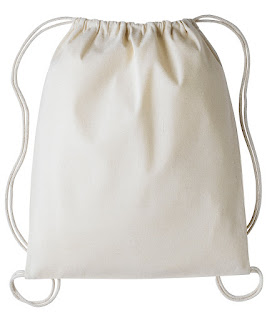The Sustainable Revolution: Exploring the World of Cotton Bag Manufacturing
Introduction:
In an era where environmental
consciousness has become paramount, the demand for eco-friendly alternatives
has surged. One industry that has witnessed a remarkable transformation in
response to this growing demand is the cotton bag manufacturing sector.
Plain Drawstring Bags:
Plain drawstring bags have
emerged as a versatile and sustainable accessory in the world of fashion and
daily use. These bags, made primarily from cotton, offer a simple yet stylish
solution for those looking to reduce their environmental footprint. The
drawstring closure not only provides convenience but also adds a touch of
uniqueness to the design.
Manufacturers of plain
drawstring bags prioritize using organic and ethically sourced cotton
to ensure that the entire lifecycle of the product remains environmentally
friendly. By avoiding synthetic materials and opting for natural fibers, these
bags contribute to reducing the pollution caused by traditional plastic-based
alternatives.
Recycled Tote Bags in the UK:
The United Kingdom has been at
the forefront of the movement towards sustainability, with a growing emphasis
on reducing single-use plastic. Recycled tote bags have become a symbol of this
commitment, offering consumers a reusable and eco-friendly alternative to
conventional shopping bags.
These tote bags are often crafted
from recycled cotton or a blend of recycled materials, minimizing the
environmental impact associated with conventional manufacturing processes. The
use of recycled materials not only reduces the demand for new resources but
also helps in diverting waste from landfills.
Cotton Bag Manufacturers:
Cotton bag manufacturers
play a pivotal role in the production and promotion of sustainable alternatives
to traditional plastic bags. These manufacturers are committed to adopting
eco-friendly practices throughout the entire production process, from sourcing
raw materials to the final stages of manufacturing.
Ethical sourcing of cotton is a
key aspect of responsible manufacturing. Cotton bag manufacturers often
collaborate with farmers and suppliers who adhere to sustainable farming
practices, thereby ensuring that the production of cotton does not contribute
to deforestation or excessive use of harmful pesticides.
Furthermore, these manufacturers
invest in state-of-the-art machinery and technologies to streamline the
production process, minimizing waste and energy consumption. The commitment to
reducing the carbon footprint extends beyond the finished product, making
cotton bag manufacturing an environmentally conscious industry.
Printed Jute Bags:
Printed jute bags combine
sustainability with style, offering a fashionable alternative to conventional
bags. Jute, a natural fiber derived from the jute plant, is renowned for its
durability and biodegradability. Jute bags are not only sturdy and long-lasting
but also break down naturally, leaving behind minimal environmental impact.
The appeal of printed
jute bags lies in their customizable designs. Manufacturers use
eco-friendly, water-based inks to print intricate designs or brand logos on
these bags. This personalization not only adds a touch of uniqueness but also
serves as a powerful marketing tool for businesses looking to align themselves
with environmentally conscious consumers.
The shift towards sustainable
living has given rise to a revolution in the manufacturing of cotton bags.
Plain drawstring bags, recycled tote bags in the UK, cotton bag manufacturers,
and printed jute bags all contribute to this movement by offering consumers
eco-friendly alternatives to traditional plastic bags. As the demand for
sustainable products continues to grow, these manufacturing practices are not
just trends but essential steps towards a greener and more responsible future.
By choosing products that prioritize the environment, consumers and businesses
alike can actively participate in creating a more sustainable and eco-conscious
world.




Comments
Post a Comment